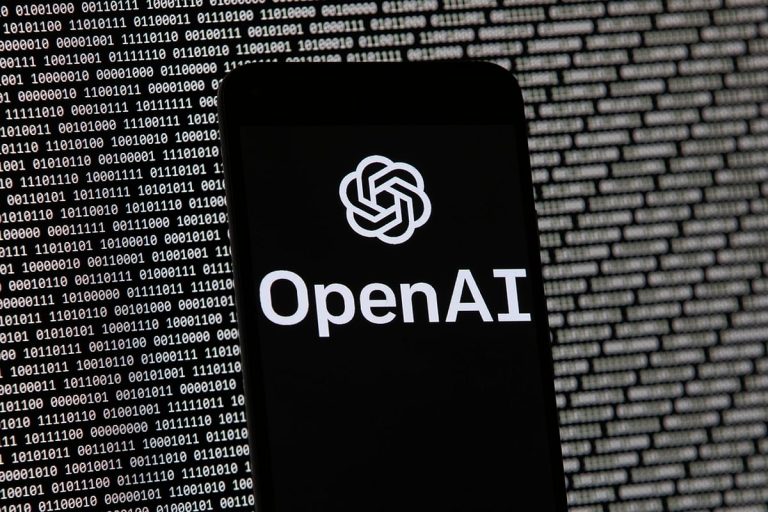AI’s Impact on Jobs: Layoffs and New Opportunities
The rise of artificial intelligence (AI) is reshaping the employment landscape in 2025, leading to significant changes in how companies operate. While many organizations are reducing their workforce due to AI-driven efficiencies, others are actively hiring to harness the technology’s potential. This article explores the current trends in job cuts and new opportunities created by AI advancements.
Job Cuts Driven by AI
As AI technology continues to evolve, numerous companies have announced layoffs, attributing these decisions to automation and efficiency improvements. In total, over 180,000 tech jobs have been eliminated across 218 firms, with AI being a primary factor in these restructuring efforts.
Major Companies Implementing Layoffs
1. **Amazon**: The retail giant plans to cut up to 30,000 corporate jobs, having already reduced its workforce by 14,000. CEO Andy Jassy has pointed to AI efficiencies in various sectors, including corporate operations and cloud services, as a significant reason for these layoffs.
2. **Microsoft**: The tech leader has laid off approximately 15,000 employees in multiple rounds, with many of these cuts linked to AI-driven restructuring initiatives.
3. **Meta (Facebook)**: The company has reduced its workforce by about 5%, translating to around 4,000 positions, citing AI-related efficiencies and a shift in company priorities.
4. **Intel**: The semiconductor manufacturer is planning to cut its global workforce by approximately 24,000 employees, driven by technological shifts, including AI.
5. **Tata Consultancy Services (TCS)**: Initially cutting nearly 12,000 jobs, TCS has since increased this number to 20,000, particularly affecting mid and senior-level roles due to AI changes.
6. **Salesforce**: The company has eliminated 4,000 customer support positions, as AI is now handling about half of the workload.
7. **Klarna**: The fintech company has reduced its workforce by 40% as it aggressively integrates AI solutions.
8. **Lufthansa**: The airline has announced plans to cut 4,000 jobs by 2030, citing AI for operational efficiency.
9. **IBM**: The tech giant plans to replace around 30% of its back-office roles with AI over the next five years, which could equate to roughly 8,000 jobs.
10. **Duolingo**: The language-learning platform intends to transition from contractors to an AI-assisted workforce.
These layoffs reflect a broader trend where traditional roles are being replaced or redefined due to advancements in AI technology.
New Job Opportunities in AI
While many companies are downsizing, the demand for AI-related roles is on the rise. Organizations are increasingly seeking talent to drive innovation and leverage AI for growth.
Companies Expanding Their Workforce
1. **Microsoft**: In contrast to its layoffs, Microsoft is actively increasing its headcount, focusing on AI-driven productivity and technology development through partnerships with OpenAI.
2. **Meta (Facebook)**: Following its workforce restructuring, Meta is aggressively recruiting for AI and machine learning roles to enhance its capabilities.
3. **Alphabet (Google)**: Google is expanding its AI teams after merging DeepMind with Google Brain, hiring across engineering, product, and research functions.
4. **IBM**: Despite recent layoffs, IBM has quietly hired thousands of employees to support its AI initiatives.
5. **OpenAI**: The organization is hiring for various roles, including engineering and research, to advance AI model development and safety.
6. **Lambda**: This cloud GPU provider is seeking engineers and researchers to support advancements in AI hardware and software.
7. **Dataiku**: The company is hiring across engineering, product, and marketing to bolster its AI and data science platforms.
8. **Grammarly**: The writing assistant tool is investing in AI-powered language tools and expanding its engineering and product teams.
9. **AI Startups**: Numerous emerging companies are hiring for roles such as AI engineers, machine learning specialists, data scientists, and AI ethics officers.
The contrasting trends of layoffs and hiring highlight the transformative impact of AI on the job market, creating both challenges and opportunities for workers.
FAQs
What types of jobs are most at risk due to AI?
Jobs in traditional sectors, particularly those involving repetitive tasks, are most vulnerable to automation. This includes roles in customer support, data entry, and certain administrative functions.
Are there specific industries experiencing more layoffs due to AI?
Yes, the technology, finance, and customer service sectors are particularly affected, with many companies in these industries implementing AI solutions that reduce the need for human labor.
How can workers prepare for the changes brought by AI?
Workers can enhance their skills by focusing on areas that complement AI, such as data analysis, AI ethics, and machine learning. Continuous learning and adaptability will be crucial in navigating the evolving job landscape.
Conclusion
The impact of AI on employment in 2025 is profound, with significant layoffs occurring alongside new job opportunities in AI-related fields. As companies adapt to this technology, workers must remain vigilant and proactive in developing skills that align with the changing demands of the job market. Embracing lifelong learning and adaptability will be essential for navigating this transformative era.
Also Read:
New Conjuring Prequel Announced with HBO Series Development







